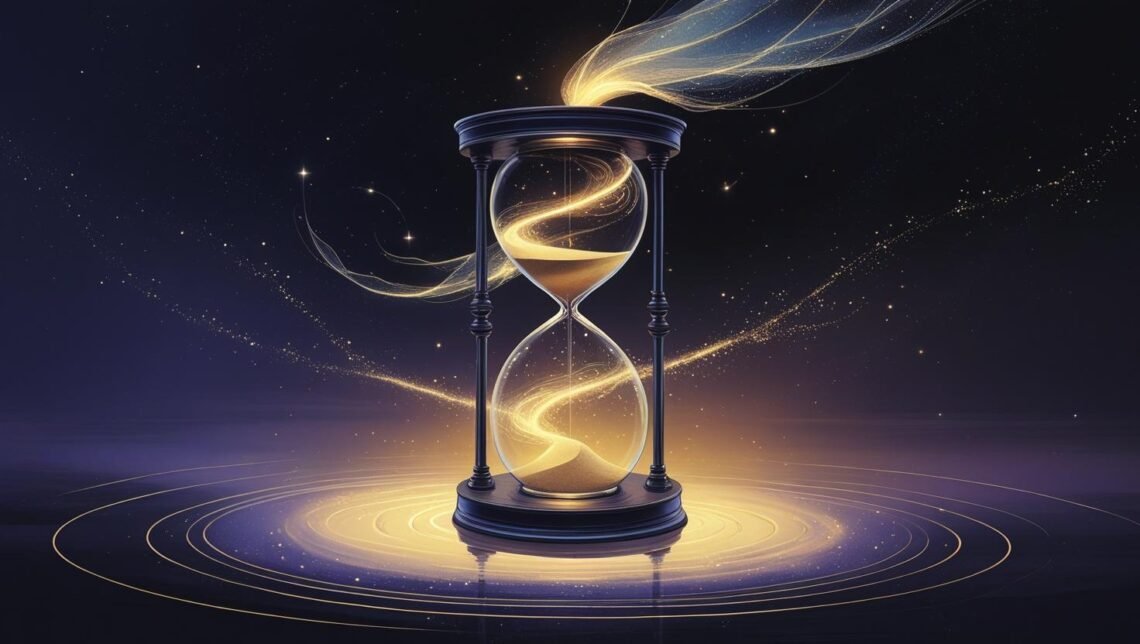Time, we are told, is inexorable. The clock ticks, the sun sets, the years accumulate in our joints and our hair. Yet there are moments that seem to slip beyond this steady march, moments in which an hour holds more than a lifetime, or in which a lifetime folds itself into a single breath. To speak of eternity is to enter this paradox: that the infinite is sometimes glimpsed within the most finite of hours.
Consider the experience of falling in love. A single afternoon’s walk, a shared glance across a crowded room, can swell with meaning so vast it resists containment. Or think of the silence at a deathbed, when time seems both unbearably heavy and strangely suspended, as if one stands on the threshold of another dimension. These are not simply emotional exaggerations. They are encounters with something that shimmers through the cracks of chronological time.
Philosophers and poets alike have wrestled with this. Augustine confessed that while he knew what time was, he could not explain it. Kierkegaard wrote of the “moment” as the place where time and eternity touch. T. S. Eliot, with characteristic gravity, spoke of the “still point of the turning world.” Each testifies to the intuition that time is not only linear sequence but also depth, capable of opening into eternity.
We might call this distinction the difference between Chronos and Kairos, yet here the emphasis is not on contrast but on fusion. For eternity is not another world, remote and inaccessible, but the hidden dimension of this one. It is the sudden sense that the ordinary is radiant with significance, that the present is charged with a weight far beyond its duration.
Such moments cannot be manufactured, though they can be welcomed. They arrive often unbidden,while listening to music, holding a child, standing before mountains, or kneeling in prayer. What unites them is a suspension of our usual anxious grasping. We are, if only for a breath, entirely present. And in that presence, the eternal stirs.
The implications for meaning are profound. If eternity can be glimpsed in an hour, then the measure of a life is not found in its length but in its depth. The one who has known even a few such moments may be richer than the one who has lived long without ever noticing them. Death itself, though real and grievous, loses some of its sting, for eternity has already been tasted in the here and now.
This does not erase the reality of chronological time. Bills must still be paid, meals prepared, children collected from school. But perhaps it offers a way of inhabiting time differently. If we live with eyes open to eternity, even the most ordinary of tasks can be transfigured. The washing of dishes becomes an act of care, the daily commute a pilgrimage, the passing hour a vessel of grace.
At its heart, then, the mystery of eternity in an hour is a call to attentiveness. We need not escape time to touch the eternal; we need only enter more fully into the time we are given. For beneath the ceaseless ticking, there is a silence. Beneath the changing seasons, there is a stillness. Beneath our hurried stories, there is a Presence that holds all things together.
Perhaps this is what it means to live wisely: not to master time, nor to outrun it, but to dwell within it with reverence, trusting that every fleeting hour carries within it the possibility of eternity. And when our final hour arrives, it may not be an ending at all, but the great unveiling of the eternal we have glimpsed all along.






The idea that moments can hold both the weight of eternity and the brevity of time is such a profound thought. It’s amazing how we can experience these fleeting instances, like a shared glance or a quiet pause, that seem to stretch far beyond their actual duration. It really makes me reflect on how often we overlook these moments in our rush through life.